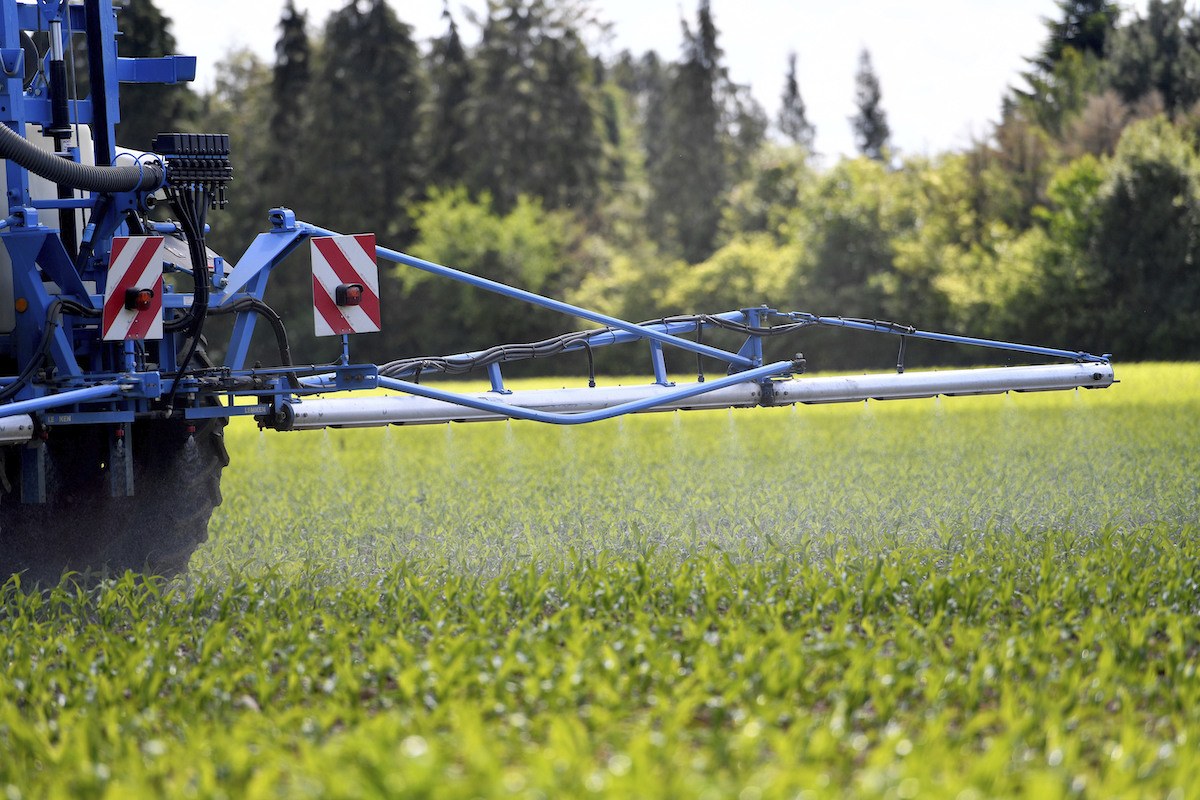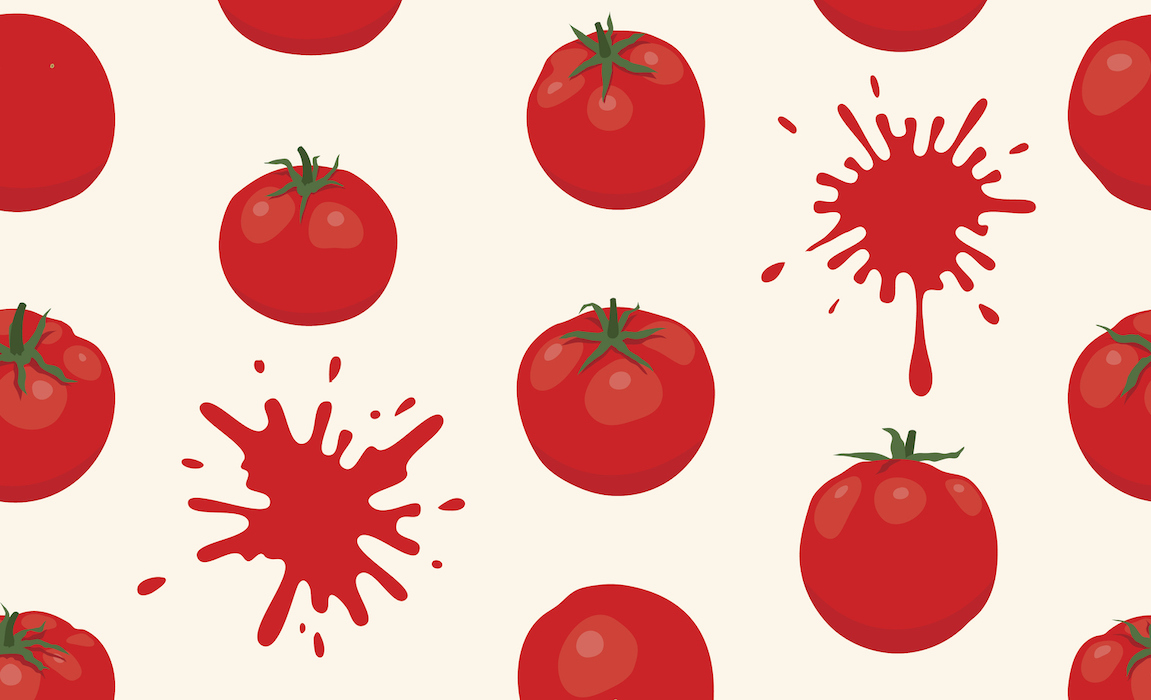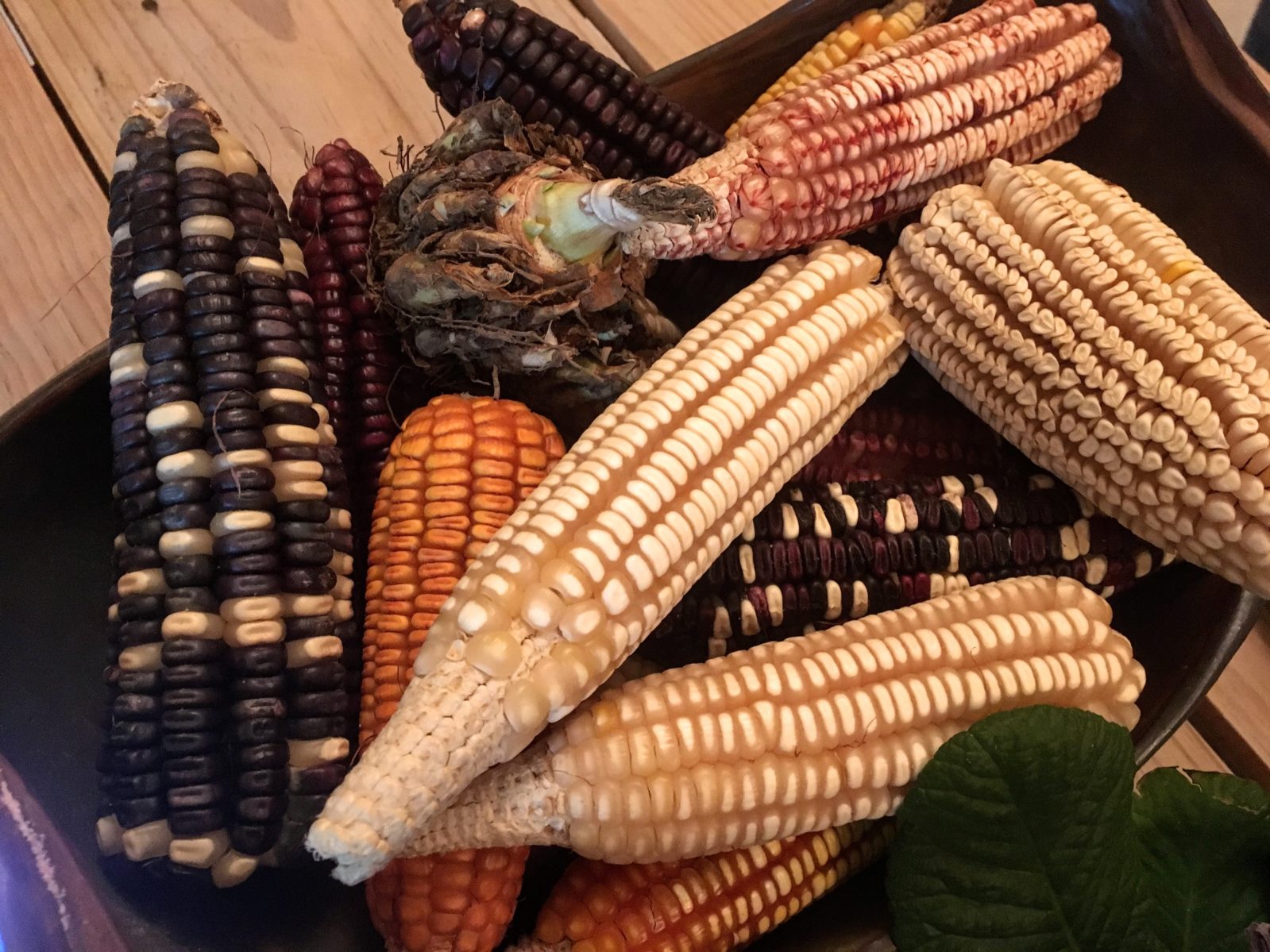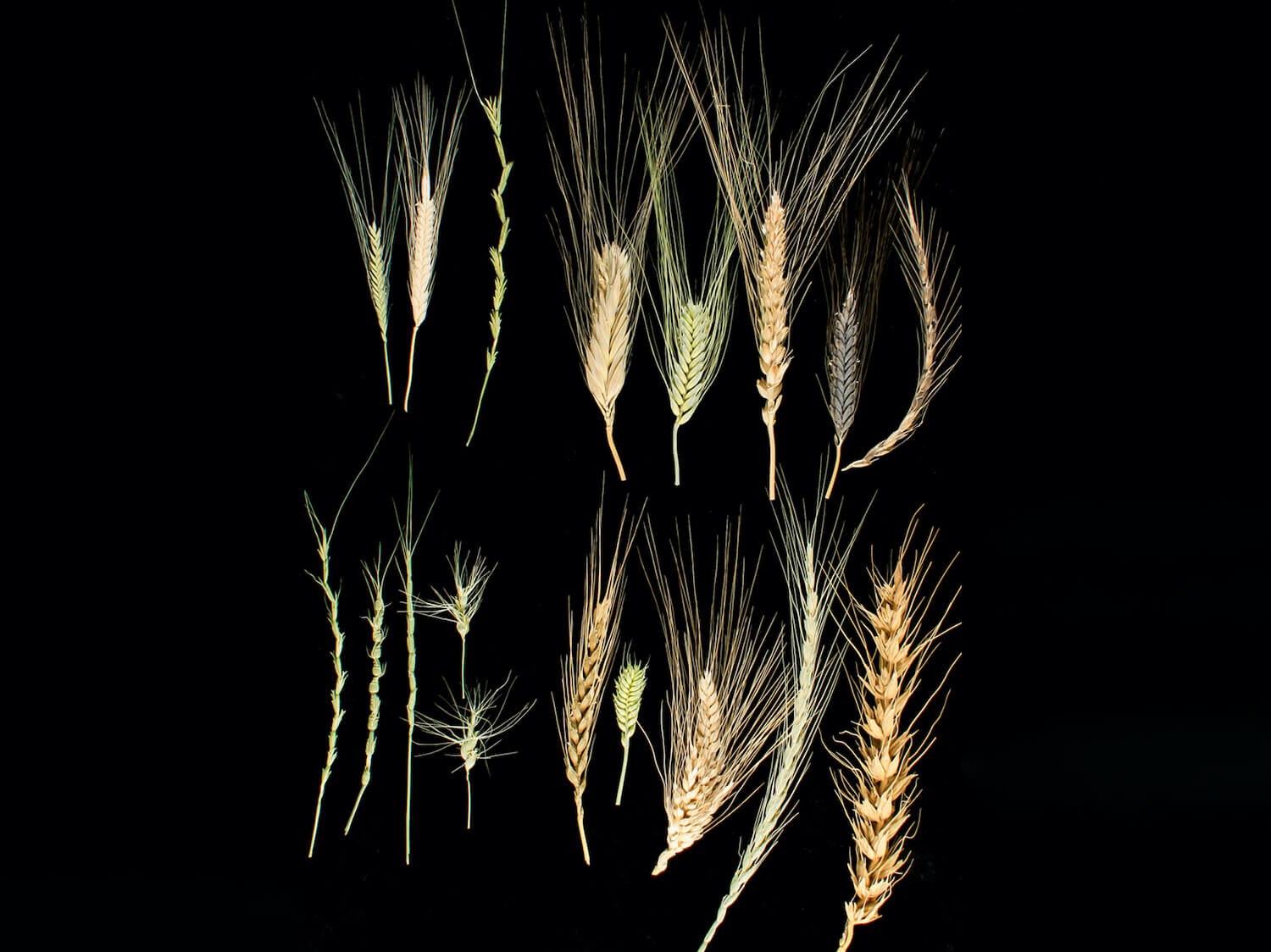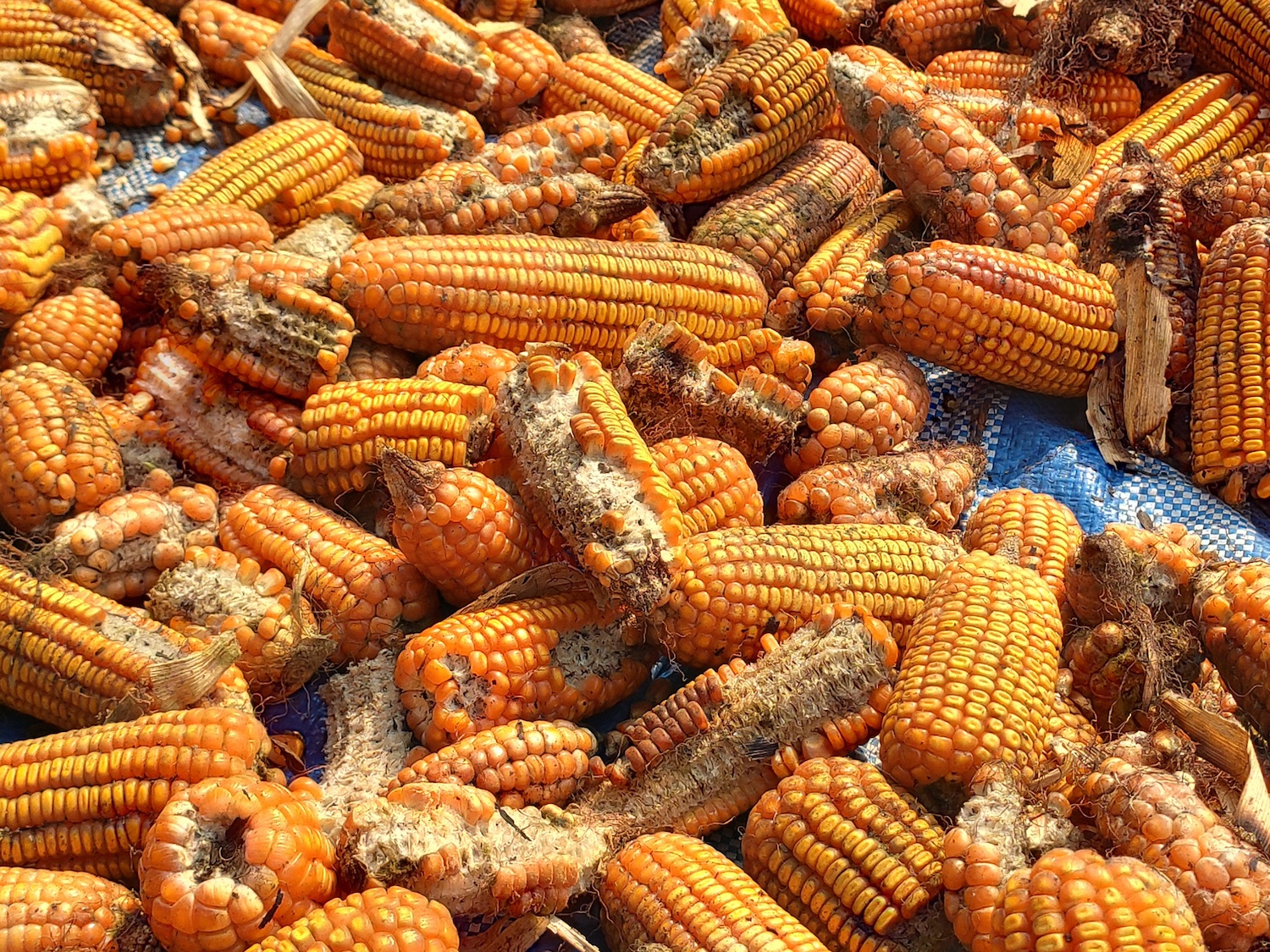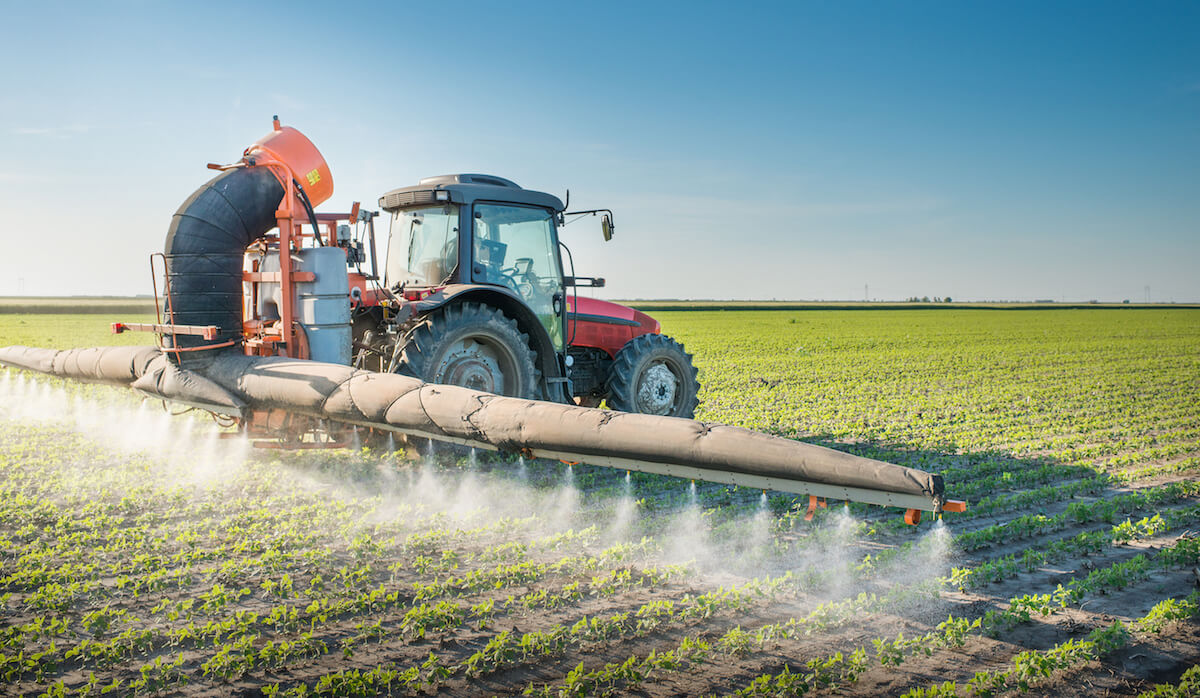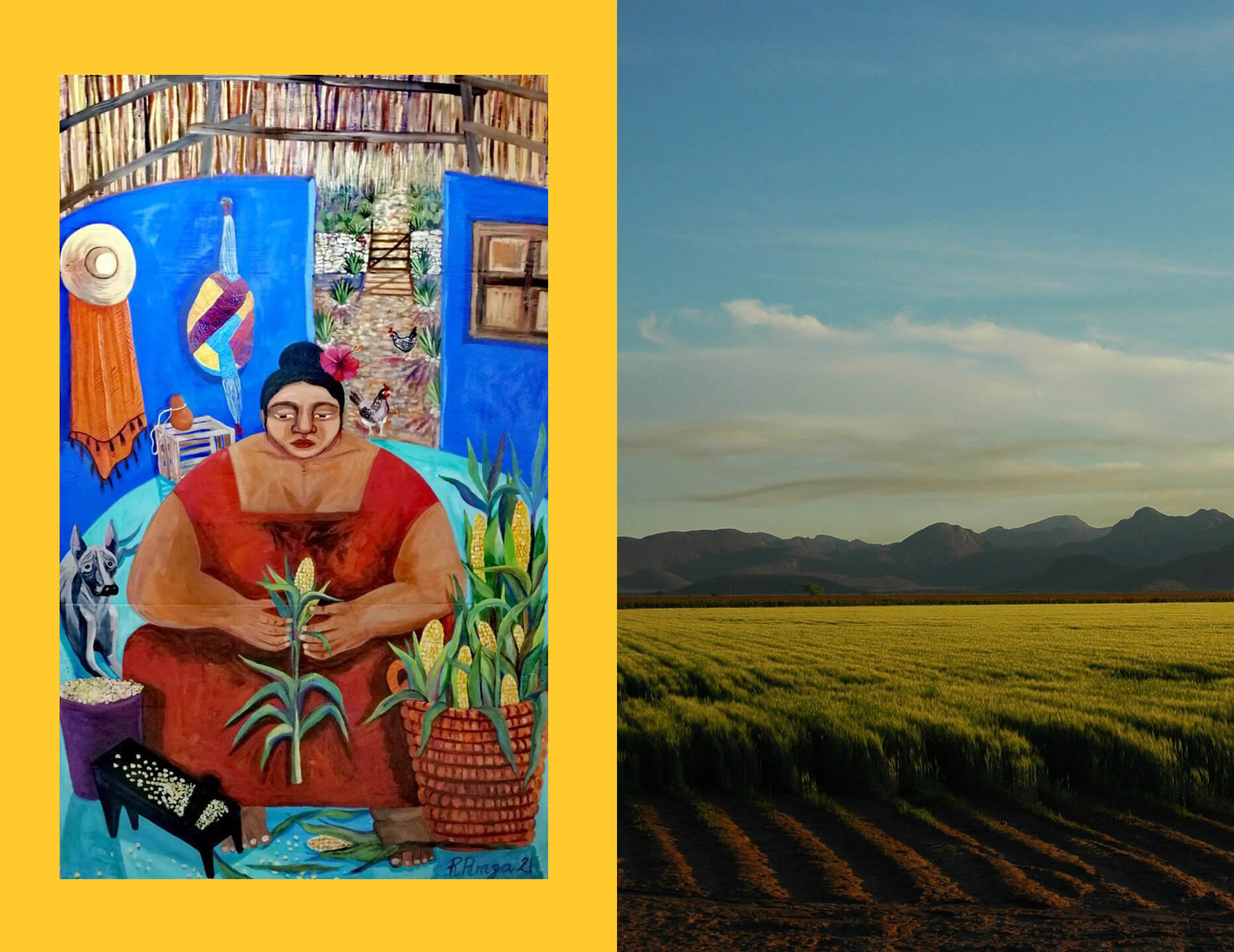
Mural by Rosy Peraza Rios | Flickr/Wonderland
President López Obrador’s decree could forge the “hope at home” U.S. officials espouse.
Pictured above: “Indigenous woman shelling corn” mural by Rosy Peraza Rios (left) and corn fields in Sonora, Mexico (right).
Last month, on her first international trip as Vice President, Kamala Harris offered a blunt message to Mexican and Central American migrants considering “the dangerous trek” to the United States: “Do not come.” Rather than quell waves of migration through punitive measures at the border, she said, the Biden administration would encourage people to remain in their own countries by focusing on programs that provide “hope at home.”
The administration’s idea (at least in theory) is to focus on root causes for the departure, rather than crack down on those who are vulnerable—or desperate—enough to risk the journey. But any attempt at genuine reform will need to weigh the impact of U.S. trade policies on poverty abroad, particularly relating to food and agriculture.
Mexico is now the United States’ single largest agricultural trading partner, largely the result of the North American Free Trade Agreement (NAFTA), a treaty enacted in 1994 that eliminated tariffs on the majority of goods produced and traded between the United States, Mexico, and Canada. Although NAFTA was heralded by the U.S. government for reducing barriers to trade, as The Counter previously reported, the pact devastated rural economies in Mexico, flooding the market with cheap, government-subsidized U.S. corn and gutting domestic corn prices by nearly 70 percent. This shift led an estimated 2 million farmworkers to abandon the countryside to seek work in big cities or across the border in the United States.
The United States-Mexico-Canada Agreement (USMCA)—the replacement for NAFTA that entered into force in 2020—further entrenched this challenge. Touted by then-U.S. Secretary of Agriculture Sonny Perdue as a “better deal for America’s farmers, consumers, and workers that will set them up for success for decades to come,” USMCA has done little to benefit Mexico’s small and subsistence farmers or stem the flow of migration that dropped during the height of the pandemic but is, again, increasing. New data released on Friday by U.S. Customs and Border Protection showed that June was the highest month for new arrivals at the southern border since President Biden took office.
Nearly all of the 16 million tons of corn Mexico imports each year is used for livestock and industrial purposes, while corn for human consumption is grown domestically.
Now, days out from the expiration of the latest ban on non-essential travel between the U.S. and Mexico, it is unclear how the Biden administration intends to reckon with this legacy. But if our southern neighbors seek “hope at home,” they may find it in the form of policy changes cultivated within Mexico itself.
On December 31, 2020, Mexican President Andrés Manuel López Obrador signed a decree that could enable Mexican farmers to reclaim their livelihoods within their home country. The order calls for the phase-out by 2024 of two pillars of American agribusiness: glyphosate and genetically engineered (GE) corn, particularly corn grain consumed as part of “the diet of Mexican women and men.”
Glyphosate is an herbicide sprayed on corn and other crops that have been genetically engineered to tolerate its plant-killing properties. It is the active ingredient in Roundup, a flagship product of the company formerly known as Monsanto, that, in 2018, was acquired and fully absorbed by the German chemical company Bayer.
López Obrador’s decree was created with the explicit goals of rebuilding self-sufficiency and reclaiming food sovereignty, efforts that eroded under NAFTA due to a requirement that Mexico open its markets to U.S. corn. Mexico now purchases 25 percent of American corn exports, amounting to more than $2.7 billion annually. Nearly all of the 16 million tons of corn Mexico imports each year is used for livestock and industrial purposes, while corn for human consumption is grown domestically. Nevertheless, the imports represent one-third of Mexico’s overall demand for corn.
Because of how the decree was phrased, it remains unclear whether GE corn for animal feed will be subject to the eventual ban. While Mexico’s Agriculture Secretary Victor Villalobos Arambula has assured U.S Secretary of Agriculture Tom Vilsack that only grain for human food products will be affected, the vaguely-worded decree is subject to interpretation by the government ministries of Agriculture, Health, and Environment as well as CONACyT, the National Council of Science and Technology. The latter three of these four parties are more closely aligned with Deputy Minister for Agriculture Víctor Suárez, an agronomist and key architect of the decree, who advocates for banning all GE corn imports.
The phased prohibition could transform the multibillion-dollar grains trade between the United States and Mexico.
Although the task is formidable, the phased prohibition could transform the multibillion-dollar grains trade between the United States and Mexico, and increase local farmers’ market share within Mexico. But in order to replace these imports, Mexican farmers would need to increase domestic production by nearly 60 percent, a goal dismissed as unrealistic by critics of the policy. Suárez acknowledged the daunting challenge in February, when he said, “Say we don’t reach the goal of substituting the 16 million tons [of imports], and we only reach the substitution of 10 million. Well, we would evaluate that along the way and…make the necessary adjustment …. We have to put the right to life, the right to health, the right to a healthy environment ahead of…business.”
This executive order not only advances a core commitment López Obrador made in his inaugural speech in 2018 around achieving self-sufficiency in grains. It builds on more than a decade of grassroots resistance against an earlier government decision to allow permits for GE corn cultivation, including the 2013 efforts of a coalition of Mexican social and environmental justice advocates, smallholder farmers, beekeepers, and scientists who filed a class-action lawsuit to halt further permitting of GE corn. The group argued that the crops would adversely impact small farmers whose livelihoods depended on cultivating the dietary staple (once the largest source of rural employment) and would threaten the biodiversity of native landrace varieties of corn that were already in danger of disappearing. “Our country must be oriented towards establishing a sustainable and culturally adequate agricultural production, through the use of agroecological practices and inputs that are safe for human health, the country’s biocultural diversity and the environment, as well as congruent with the agricultural traditions of Mexico,” the decree states.
Source: USDA
Although Mexico’s existing ban on the cultivation of GE corn means that glyphosate is not sprayed directly on corn grown within the country, the chemical is used on permitted GE crops such as cotton, and as a general purpose weed killer. Indigenous groups have long fought to limit its use on their lands, citing environmental and health hazards. “We know that glyphosate is categorized as a probable human carcinogen,” said Tim Wise, senior advisor at the Institute for Agriculture and Trade Policy and author of Eating Tomorrow: Agribusiness, Family Farmers, and the Battle for the Future of Food. “Mexico’s phase-out fits within a larger plan of banning a host of chemicals that are considered ultra-hazardous.”
Glyphosate is ubiquitous in the United States, sprayed on almost all corn grown for domestic use as well as for export. Nearly all of this corn is genetically engineered to withstand the direct application of glyphosate or other herbicides, including glufosinate and dicamba.
Despite numerous legal verdicts within the United States ruling that Roundup caused cancer in U.S. users of the product, Bayer—which inherited tens of thousands of lawsuits associated with the product when it acquired Monsanto—maintains that scientists have determined glyphosate is safe for human use.
However, The Counter and other outlets have reported that Monsanto helped ghostwrite studies that defended the product’s health impacts, and kept files on journalists and lawmakers in an attempt to influence both reportage and regulation of the chemical. Additionally, recent commentary from researchers at the Institute of Cancer Research at the Medical University of Vienna in Austria indicates most of the corporate-backed safety studies cited by Bayer relied on flawed and outdated science.
Nearly all of this corn is genetically engineered to withstand the direct application of glyphosate or other herbicides, including glufosinate and dicamba.
Yet Bayer, its industry peers, and the U.S. government remain united in their opposition to Mexico’s planned phase-out. A Guardian exposé published in February revealed a coordinated effort between Trump government officials, Bayer, and industry lobbyist CropLife America pressuring Mexico to abandon its prohibition decree. More recently, a joint letter to Secretary Vilsack and U.S. Trade Representative Katherine Tai signed by more than two dozen domestic agricultural heavyweights, as well as a readout of a May 17 virtual meeting between Tai and Mexico’s Secretary of Economy, Tatiana Clouthier, illustrate the United States’ emphasis on “an immediate resumption of authorizations of agricultural biotechnology products in Mexico.”
Additionally, an official statement from CropLife said the decree “… sets a dangerous precedent. [It] is not based on a comprehensive risk assessment [and] ignore[s] public comments from the Mexican grower community that spoke to the devastating impact the ban would have on agriculture in Mexico.”
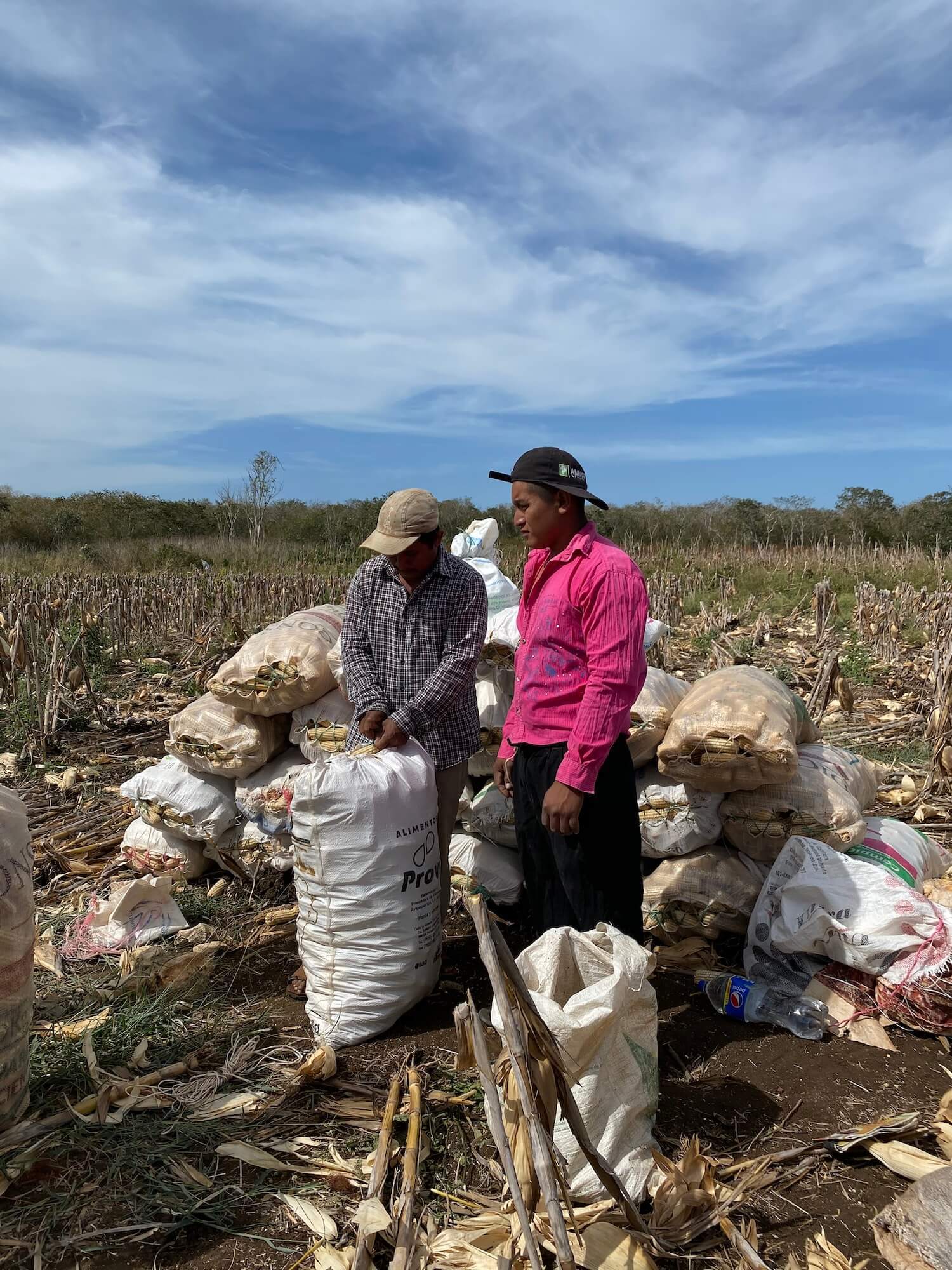
Simran Sethi
Campesinos harvesting corn in Yucatán, Mexico.
The phase-out plan has, indeed, generated pushback, including 17 unsuccessful legal challenges in Mexican courts, mostly from agribusiness interests including the country’s National Farm Council. In an interview with Reuters, National Farm Council spokeswoman Laura Tamayo (who also serves as regional corporate director for Bayer) said, “The lack of access to production options puts us at a disadvantage compared to our competitors, such as corn farmers in the United States.”
Leticia López Zepeda, executive director of the autonomous cooperative of small- and medium-sized commercial grain farmers known as ANEC, conceded that an overhaul of Mexican agriculture will take years, if not decades. “Finding a substitution for glyphosate is incredibly challenging. It’s like an addiction: an alternative must be formed in order to satisfy [farmers’] needs.” Nevertheless, she said, “Campesinos [local farmers] have the tools and resources they need, and are excited to return to a traditional farming culture.”
López Zepeda suggested that her cooperative’s farmers would rather take on new challenges than work within the system that supports GE corn. In her view, that system is marketed in the name of feeding people, but has failed to do so well: “They try to sell the idea that with transgenic corn, we’re going to provide good nutrition to the world. But we know this is not true because transgenic corn will hold onto and transfer all the glyphosate [to people].”
Although Mexican farmers focus on growing the 25 million tons of white corn used annually to make tortillas and other dietary staples, transgenic corn continues to seep into Mexico’s food supply: indirectly through the consumption of animal protein, and directly through food products such as cornstarch and high fructose corn syrup that allow for GE corn, as well as through informal seed exchanges.
“Campesinos [local farmers] have the tools and resources they need, and are excited to return to a traditional farming culture.”
“Kernels of corn are seeds. Whether it’s for livestock feed or anything else, if a farmer sees them and doesn’t know they are transgenic, he or she might plant them,” Wise explained. “Even though Mexico has banned the cultivation of GM corn [except for limited experimental projects], contamination through cross-pollination with native corn is happening, inadvertently, from whatever corn is being imported from the United States.”
Although full details of the plan have not been released, Wise said “sustainable and culturally appropriate” alternatives to glyphosate are being actively developed. “An experimental trial in the heart of industrial maize country, where the biggest farms are, shows that, by employing a series of biofertilization and biopesticide applications as a substitute for glyphosate, [farmers] could get comparable yields for much lower costs.”
Despite uncertainties about how transgenes from GE corn or alternatives to glyphosate might impact native crops and reshape domestic agriculture, one thing is certain, said Mauricio Bellon, human ecologist and research professor at Arizona State University’s Swette Center for Sustainable Food Systems: “The introduction of transgenic varieties is cultural erosion. It threatens the practices and institutions that have been maintained since the crop originated.”
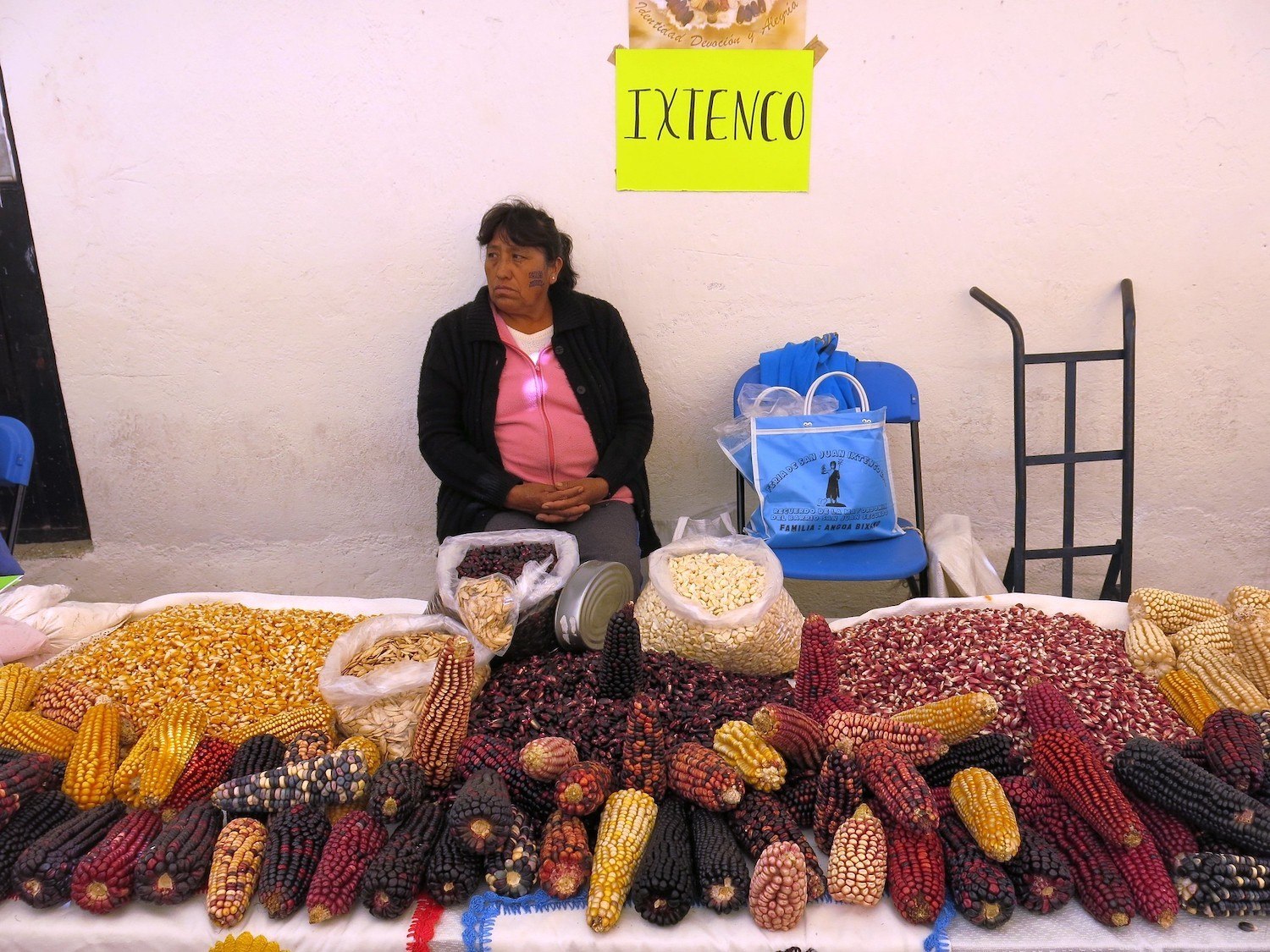
Biodiverse maize sold in Tlaxcala, Mexico market.
Flickr/Thomas Lumpkin/CIMMYT
Mexico is the world’s largest, most diverse, and enduring genetic resource for corn, home to nearly 60 corn landraces, plus its wild relative, teosinte. These varieties—which have been preserved through seed saving practices over multiple generations—hold genetic traits that will need to be bred into commercial strains, helping them respond better to threats from pests, disease, and climate change volatility. GE corn poses an existential threat to those heirloom varieties, since intermixing could lead to the expression of patented genes, making them the intellectual property of companies like Bayer.
“What happens to the farmers’ rights if their crop is contaminated with GM seed?” Bellon asked. “Seed saving could, theoretically, become illegal.” His concerns around the legality of seed saving and sharing are rooted in precedent, evidenced not only in global seed treaties, but in regulations within the United States.
In addition to sustaining traits that are essential for future breeding, Bellon stressed, Mexico’s centuries-old production and culinary practices reveal a depth of connection that extends well beyond physical nourishment to spiritual and cultural sustenance. Corn is not only a dietary staple. It is an integral part of Mexican land and culture. “The invention of corn by Mexicans,” poet and Nobel Laureate Octavio Paz once said, “is only comparable to the invention of fire by man.”
“If this maize is considered a commodity under the premise of food self-sufficiency, it will lose its strength as a niche specialty product: its most important [economic] value.”
Despite this unique and integral link to the past, present, and future of corn, not everyone agrees that GE imports endanger Mexico’s crop, or that higher yields will benefit smallholder farmers. As general director of Servicio Nacional de Inspección y Certificación de Semillas, the country’s agency devoted to preserving and certifying local plant varieties, Enriqueta Molina Macías oversaw Mexico’s Plant Variety Protection program. She maintains that genetic modification, and potential genetic contamination, are not what really threatens Mexico’s native corn species: “Genetically modified corn has not been authorized for commercial use. The reduction of the presence of landraces is likely caused by the use of new plant varieties, including hybrids with better yields, higher industrial quality, and greater homogeneity.”
Singling out GE corn, she said, does not mitigate biodiversity loss, and, in fact, she explained, the government’s order may increase the threat. “The farmers who cultivate native maize are part of our most vulnerable rural population,” she said. “If this maize is considered a commodity under the premise of food self-sufficiency, it will lose its strength as a niche specialty product: its most important [economic] value.” An increase in domestic yields could drive down prices and push local farmers towards cultivating higher yielding varieties. The greatest contributor to the erosion of biodiverse native varieties, she said, is a dearth of policies and support for the mostly subsistence farmers who grow the crop.
But, according to ANEC’s López Zepeda, the Mexican government is extending support. She pointed to programs implemented under President López Obrador that pay farmers above market prices for their crops and provide financial subsidies during production to farmers working on less than five hectares (roughly 12 acres) of land. Additional government-backed projects teach corn producers how to transition away from glyphosate toward agroecological farming methods and pay rural residents to cultivate agroforestry projects on their property.
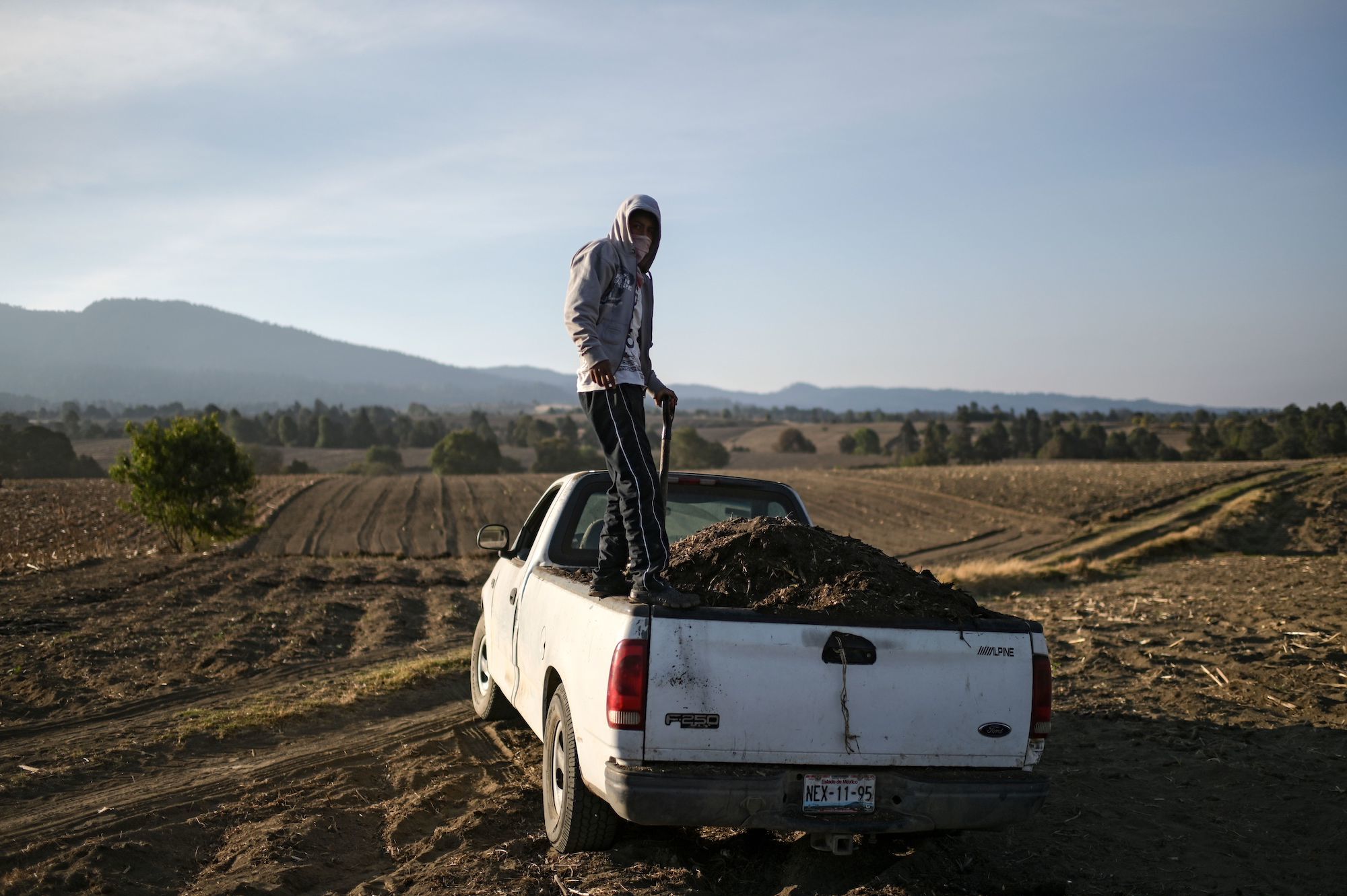
A farmer works in a corn field in San Pedro Nexapa, Mexico. Government-backed projects teach corn producers how to transition away from glyphosate and toward agroecological farming methods.
PEDRO PARDO/AFP via Getty Images
This is a welcome development to food sovereignty and environmental activists on both sides of the border who defend the decree, including a coalition of 80 organizations that signed a letter opposing U.S. interference in Mexico’s phaseout of glyphosate and GE corn. “We call on Secretary Vilsack and Trade Representative Tai, as key leaders in the new administration, to respect Mexico’s decision to protect both public health and the integrity of Mexican farming,” said Kristin Schafer, Executive Director of Pesticide Action Network North America, an organization dedicated to reducing the proliferation of synthetic inputs in the food supply, in a press release. “It is completely unacceptable for U.S. public agencies to be doing the bidding of pesticide corporations like Bayer, who are solely concerned with maintaining their bottom line profits.”
In Mexico, support includes the national movement Sin Maíz, No Hay País (Without Corn There is No Country), which delivered to Mexican authorities a similar letter signed by 335 organizations that urged them “…not to give in to the blackmail of the associations that in their eagerness to maintain their profits and preserve their power have crossed the boundaries of ethics and health, seriously damaging the health, economy, and biodiversity of the Mexican population,” and “…to jointly build a new agri-food and nutritional system model.”
Although President López Obrador is committed to reducing Mexico’s dependence on foreign corn, Wise explained that the ultimate goal is choice. “Self-sufficiency doesn’t mean that every single morsel of food that we eat is grown by our own growers. Food sovereignty means we get to determine where, when, and how we source our food and how we feed our people. And that can be from trade. That’s a choice—how much trade, how much domestic production—a sovereign choice that Mexico should get to make.”
“They should look at the policy and say, ‘Maybe we need to do some of the same kinds of things to support our country.’”
The end objective, López Zepeda added, is to topple the entire corporate agribusiness model before it wipes out agriculture as Mexican farmers know it. She readily admitted the uphill battle, but took heart in the knowledge that the campesinos are struggling in solidarity with many other farmers around the world who also believe in biodiversity. “Globally, we are all fighting to keep GMO corn from being produced. [Bayer and Monsanto] have inhumane views, and they dehumanize nutrition and campesinos. They are enemies of the pueblo. They are enemies of the planet. They are going to go down with the fight that we will continue to give them. We will defend and protect agriculture and keep it pure.”
And while the phase-out has significant trade implications for the United States, Wise said the Biden administration should not only respect Mexico’s right to make change, but consider embracing similar changes. In fact, several U.S. cities including Seattle, Miami, Austin, Los Angeles, Boston, San Francisco, and New York have already limited or banned the use of glyphosate.
“Our soils are depleted, we’re poisoning our waters,” he said. “They should look at the policy and say, ‘Maybe we need to do some of the same kinds of things to support our country.’ We also face environmental and economic crises in rural areas. We need to take steps like that, too.”
Simran Sethi’s reporting was made possible in part by the Fund for Environmental Journalism of the Society of Environmental Journalists.


